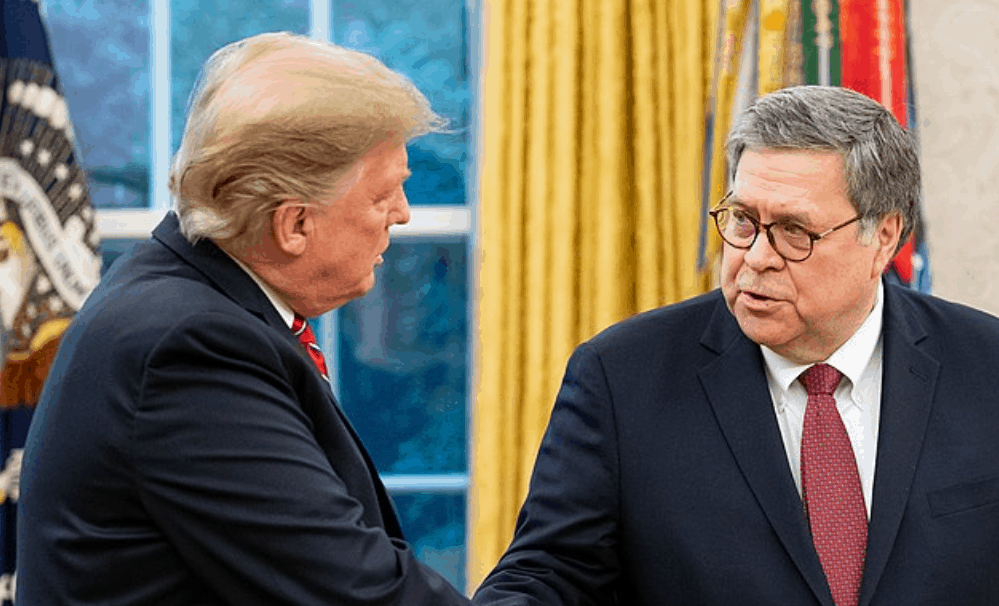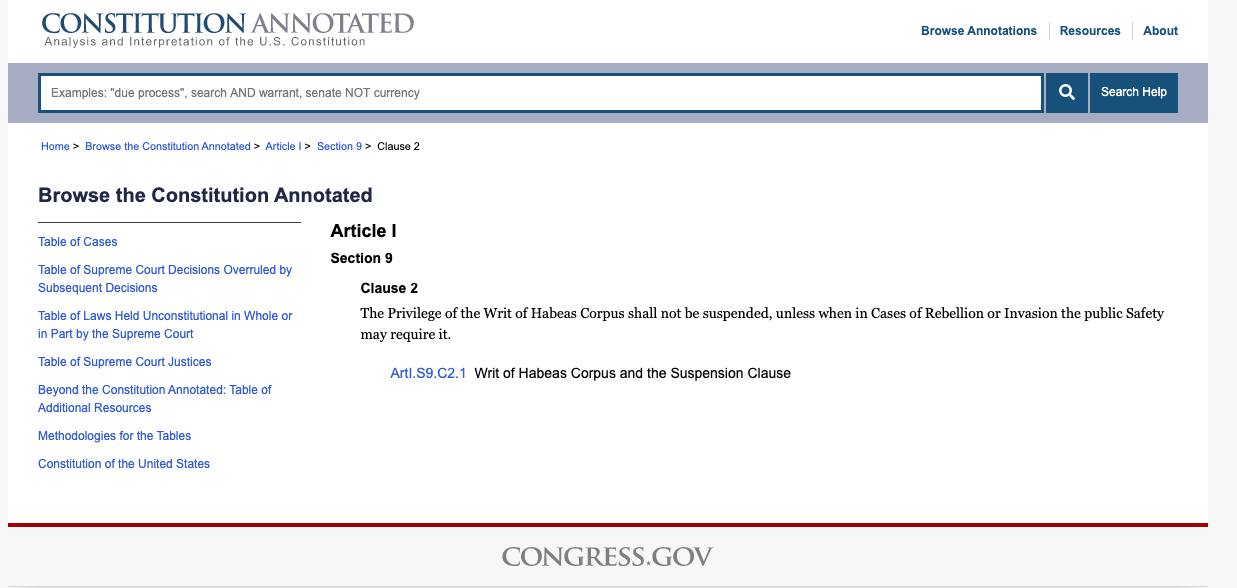What is habeas corpus, and why does the US Justice Department want to suspend it?

A few minutes every morning is all you need.
Stay up to date on the world's Headlines and Human Stories. It's fun, it's factual, it's fluff-free.
On Saturday, March 21, Politico reported that the United States Department of Justice (DOJ) had made a request to Congress that would effectively end the legal right of habeas corpus.
If granted, the requested authority would allow Attorney General William Barr to authorize the suspension of court proceedings during a national emergency.
With the US struggling to address the worsening COVID-19 pandemic, which has been declared a national emergency, some fear such authority could be abused to arrest and hold citizens indefinitely. The president, who oversees the DOJ, is already afforded considerable authority during a state of emergency.
What did the DOJ request?

Politico’s report explained that the DOJ had submitted an assortment of requests to Congress asking for new, expanded authorities during the current pandemic.
The requests deal with a range of topics, including business mergers and price-fixing cases. However, one request in particular would potentially strip American citizens of their right to face a judge if arrested.
If granted, the attorney general would have the power to authorize district judges to suspend court proceedings “whenever the district court is fully or partially closed by virtue of any natural disaster, civil disobedience, or other emergency situation.”
Anyone arrested during such a suspension could be placed in prison without first seeing a judge, a right guaranteed by US law.
Speaking to Politico, Norman L. Reimer, the executive director of the National Association of Criminal Defense Lawyers, warned of the danger of this type of action.
“You could be arrested and never brought before a judge until they decide that the emergency or the civil disobedience is over,” Reimer stated.
What is habeas corpus?
The right to appear before a judge is known as the writ of habeas corpus, a legal concept that goes back to the Magna Carta. It was officially enshrined as a part of English law in the 17th century. Translated from Latin, habeas corpus literally means “that you have the body.”
In terms of the US legal system, this particular writ is an order that requires any prisoner or detainee to be brought before a judge to determine whether they have been lawfully detained.
Article 1, Section 9 of the US Constitution states, “The Privilege of the Writ of Habeas Corpus shall not be suspended, unless when in Cases of Rebellion or Invasion the public Safety may require it.” Article 1 pertains to Congress, meaning that the legislative branch has the authority to suspend habeas corpus, but the executive branch does not.

Under the administration of former-President George W. Bush, habeas corpus was suspended for people suspected of terrorism who were being held at Guantanamo Bay in Cuba.
Human Rights Watch reported that 780 people were held at “Guantanamo, the vast majority without charge or trial.”
An emergency situation
In the US, the president, whose authority over the DOJ includes appointing the Attorney General, has considerable power to address emergency situations. The president can declare both a public health emergency and a national emergency, both of which President Donald Trump has done in response to COVID-19.
Once the president declares a national emergency, he is afforded 136 distinct emergency powers. These include the authority to shut down certain forms of electronic communication or freeze the bank accounts of American citizens.
The president can also deploy military troops to US cities. These emergency powers were authorized in 1976 by the National Emergencies Act.
Every president elected since 1976 has declared multiple national emergencies, with the coronavirus national emergency being Trump’s fifth.
The United States has technically been under a declared state of emergency for over 40 years.
Yet, despite the broad authority afforded to the president by the National Emergencies Act, no president as of yet has attempted to implement the majority of the emergency powers.
A “wartime” president resists the Defense Production Act
During a March 18 press conference regarding the US’s efforts to address the spread of COVID-19, Trump referred to himself as a “wartime president.” This assertion was intended to emphasize that the battle against the pandemic would be a difficult one for Americans.
In the face of this “war-like” national emergency, Trump has been reluctant to utilize the Defense Production Act, though he signed it last week. The act, which was originally passed in 1950 during the Korean War, gives the president the authority to require private companies to manufacture the supplies necessary for combat.
While Trump could require such companies to start producing ventilators and masks, some of the medical equipment in short supply in this pandemic, he has resisted this requirement by stating he does not want to “nationalize” American businesses.
[article_ad]
Have a tip or story? Get in touch with our reporters here!




Comments ()